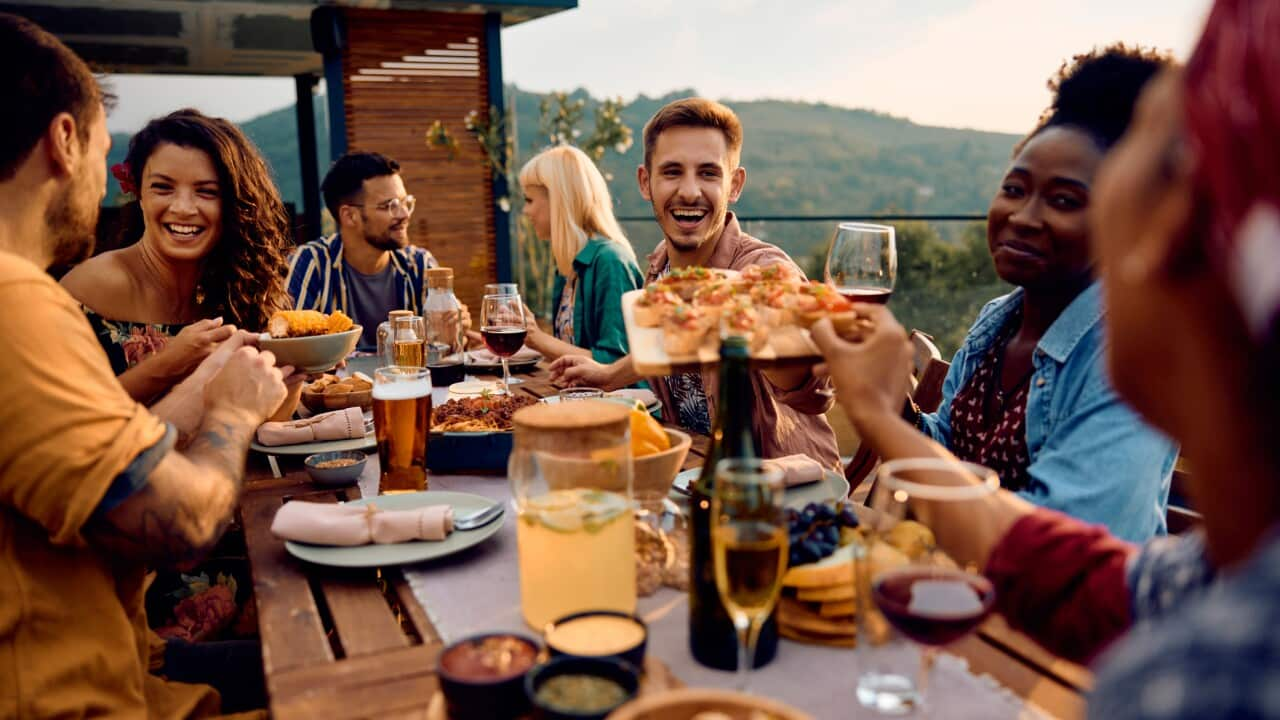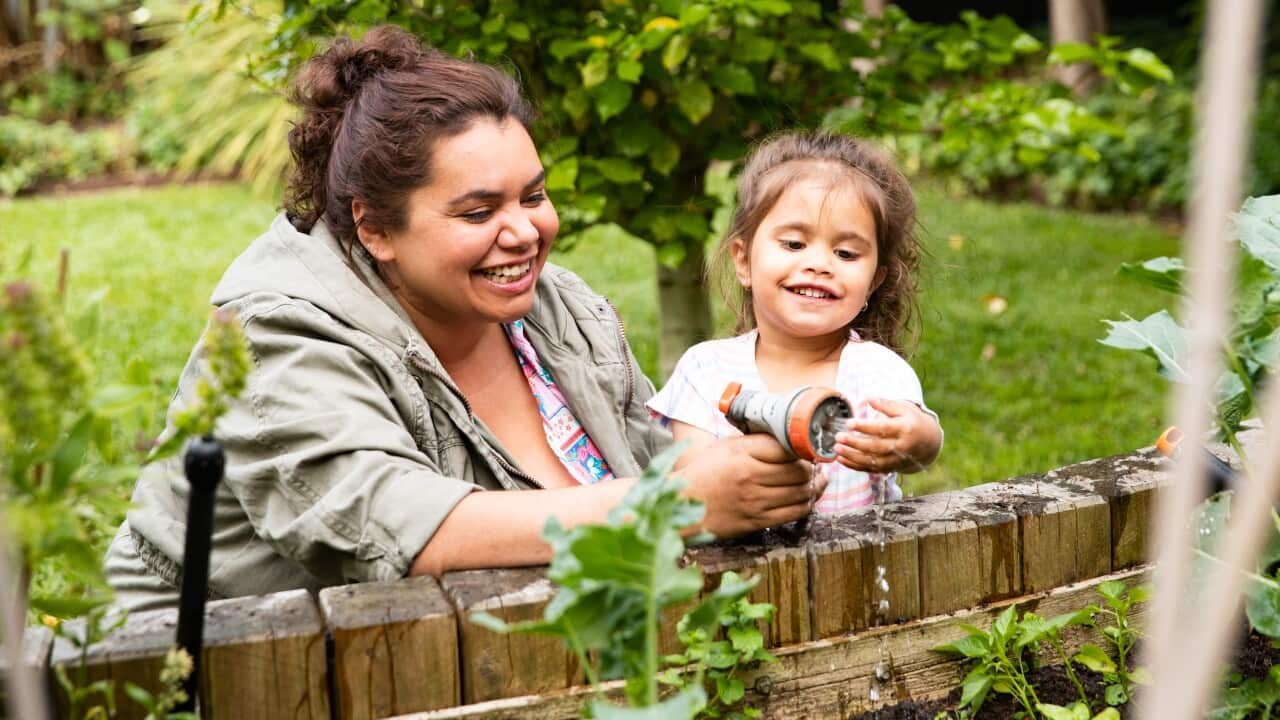This lesson is suitable for intermediate-level learners. After listening, test your knowledge with our quiz.
Learning notes
Different phrases to use when sharing food with special cultural significance:
- Oh, you have to try this! | Trust me, you need to taste this!
- I made it using my grandma’s recipe that’s been passed down in our family for generations.
- What are the main ingredients?
- While growing up, my grandma made it for me every time I needed some cheering up.
- I promised never to reveal our family secret.
- Is there a special occasion when you usually make it? | Is there a particular reason why you make this dish? | Is there a special time of year when you like to make this dish?
- It must feel great to carry on a family tradition like this.
Learning focus:
Sometimes we use the ‘passive voice’ when we want to show that this is what people normally do.
Passive voice is when the subject of a sentence is acted upon by someone or something else. Instead of saying who did the action right away, you focus on what happened to the subject.
- Babka was made by my grandma.
- In Poland, babka is usually made for Easter.
Active voice is when the subject of a sentence performs the action. It's straightforward and direct.
- My grandma made babka.
- People in Poland usually make babka for Easter.
Colloquial expressions:
Let's not bite off more than we can chew, means let's not try to do too many things at once.
When you make a promise never to reveal a secret, you agree not to share that information with anyone.
When we say that something has been passed down for generations, it means it's been given or shared from one generation to the next.
When you carry on a family tradition, you are continuing activities that your family has done for many years.
Vocabulary:
To cheer someone up means to make someone feel happy.
Ingredients are different foods used to make a dish, such as flour, sugar, eggs, butter, yeast, and chocolate.
Comfort food is food that makes you feel better and often reminds you of happy times. It's the kind of food you eat when you want to feel warm, safe, and cozy.
Transcript:
(Note: This is not a word-for-word transcript)
SBS acknowledges the Traditional Custodians of Country and their connections and continuous care for the skies, lands and waterways throughout Australia.
Hi, Josipa here. I found inspiration for today’s episode in a really sweet Learn English video project called Bring a plate. And when I say ‘really sweet’ I mean that literally.
In this context, the word 'literally' means the primary meaning of a word. So, I what I'm saying is that this series is both sweet because it will make you feel good, but is almost actually sweet because of the food it features.
I'll fill you in on all the details during during our break from learning, right now, let's not bite off more than we can chew, which means let's not try to do too many things at once.
Let's learn some new phrases with Allan and Claire. They're sharing a dish from Allan's Polish family background today! Let’s hear them!
Allan
Oh, you have to try this! I made it using my grandma’s recipe that’s been passed down in our family for generations.
Claire
I’d love to; it looks delicious. What is it called?
Allan
It’s called babka.
Claire
Babka? That sounds interesting. What are the main ingredients?
Allan
The main ingredients are flour, sugar, eggs, butter, yeast, and chocolate. There's also something else that I’m not allowed to share. My grandma made me promise to never reveal our family secret.
Claire
Ha ha. I understand. Is there a special occasion when you usually make it?
Allan
In Poland, it’s usually made for Easter. But while I was growing up, my grandma made it for me every time I needed some cheering up.
Claire
Oh, that's so nice. It must feel great to carry on a family tradition like this.
Allan
It really is. Here, have a slice.
Claire
Thank you! Wow, this is really amazing!
A babka! What a cool word, right? So, a babka is a ring-shaped cake that was first made in the Jewish communities of Poland and Ukraine back in the early 19th century.
Also, when I was chatting about it with my colleague from SBS Polish, I learned that the word ‘babka’ has multiple meanings. Besides being a cake with a texture very similar to tea cake, usually enjoyed at Easter, ‘babka’ can also mean grandma or refer to a modern-looking older woman, depending on the context.
But let’s go back to learning some useful English phrases we can use when we want to talk about dishes that remind us of our home countries. Allan first said,
Oh, you have to try this!
Oh, you have to try this! Is a great way to invite someone to try a dish you really like. You could also say, ‘Trust me, you need to taste this!’
Allan also said that he made babka using,
My grandma’s recipe that’s been passed down in our family for generations.
When we say that something has been passed down for generations, it means it's been given or shared from one generation to the next. For example, recently when my mom came to visit, she gave me a pearl necklace that she had received from her mother.
So, this necklace has been passed down from my grandmother to my mother and then to me – and I will pass it on to my children so then we can say it will be passed down in my family for generations.
Now, I don’t know about you, but whenever someone offers me a dish that I haven’t tried before, I want to know what it is made of. I think Claire feels the same because she asked Allan,
What are the main ingredients?
Ingredients are the different foods that are used to make a dish. We heard Allan saying that the babka was made with flour, sugar, eggs, butter, yeast, and chocolate. But he also said that he’s not telling us all the ingredients because,
My grandma made me promise never to reveal our family secret.
When you make a promise never to reveal a secret, you agree not to share that information with anyone.
I’m curious what is the secret ingredient that Allan used for his babka is, but I’m not going to ask him that because I feel that we should respect the fact that that people need to have secrets. Instead, let me ask you, can you list all the ingredients of your favourite dish?
And while you think about the answer, here’s another question we can ask when somebody invites us to taste their cultural dish:
Is there a special occasion when you usually make this dish?
This question asks if there's a specific reason for making the dish, like a birthday or anniversary. You could also say, ‘Is there a particular reason why you make this dish?’ or ‘Is there a special time of year when you like to make this dish?’ and it would mean the same thing.
Allan said that babka is usually eaten during Easter, and then he said,
While growing up, my grandma made babka for me every time I needed some cheering up.
If you need some cheering up, you might be feeling a bit sad or down, and you could use something to make you feel happier or more cheerful.
So, it looks like babka is Allan’s comfort food, that is, a type of food that makes you feel better and often reminds you of happier times. It's the kind of food you eat when you want to feel warm, safe, and cosy.
Towards the end of our dialogue, Claire said,
It must feel great to carry on a family tradition like this.
When you carry on a family tradition, you are continuing to do things that your family has done for many years. This helps keep your family's history and customs alive.
For example, if your family plays a special game every New Year's Eve, and you keep doing it, you're carrying on a family tradition.
A big thank you to our educational consultant, Professor Lynda Yates, and our guest Dory Wang.
Paul Nicholson and Lily O'Sullivan voiced the characters of Allan and Claire.





